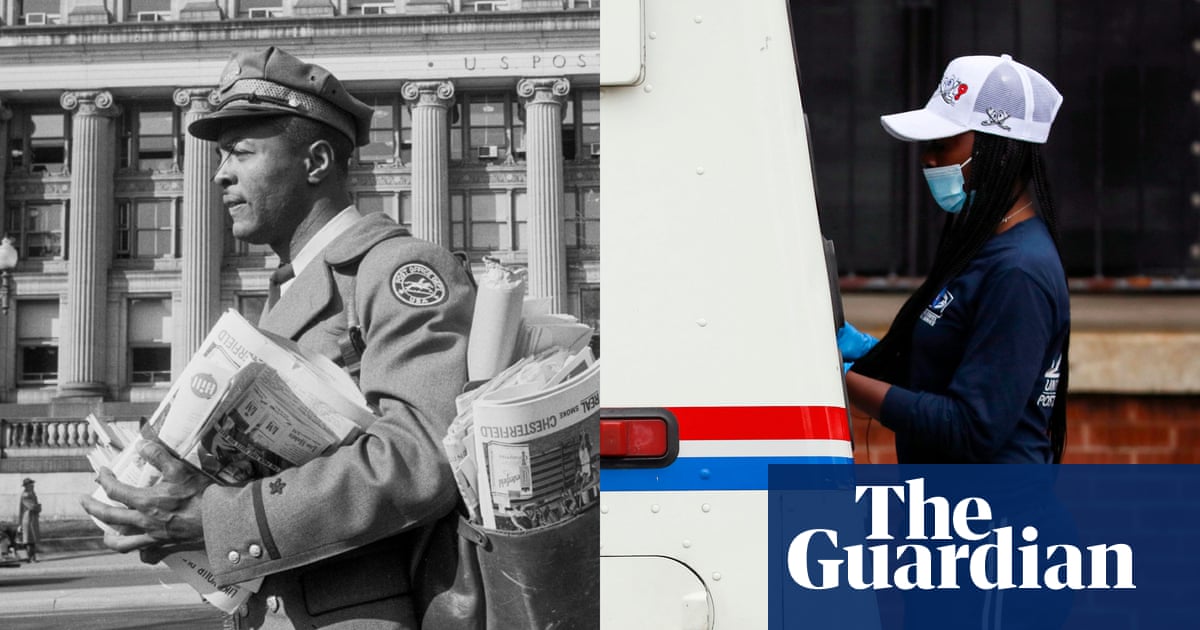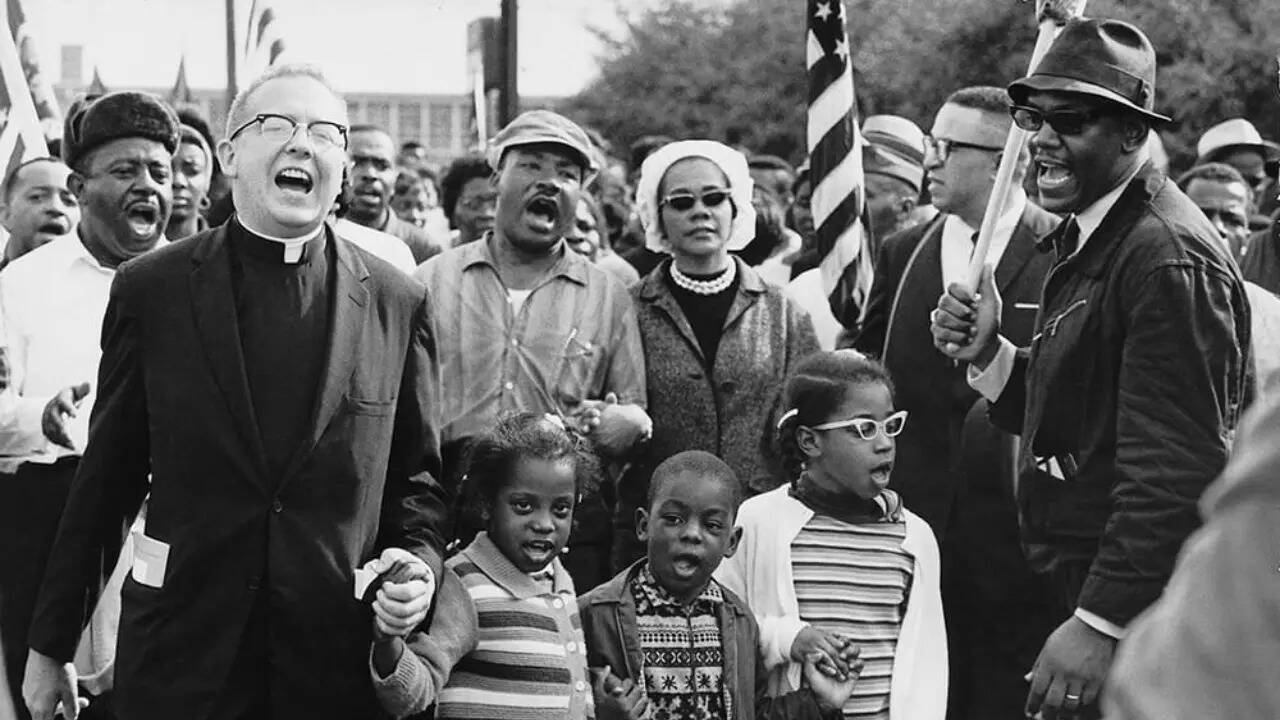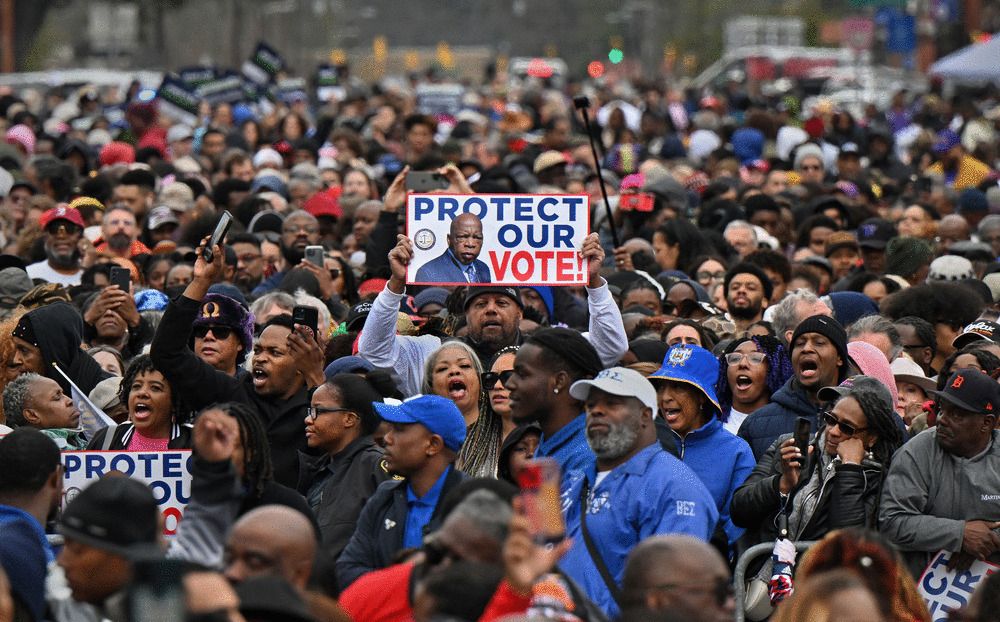- BlackVoter.Org
- Posts
- BlackVoter.Org
BlackVoter.Org


The U.S.
Postal Service (USPS) has been a crucial pillar in building the Black middle class, employing a significant 29% of Black workers in an institution where job security and benefits have historically uplifted families. However, with Donald Trump’s potential plans for privatization, this legacy faces a precarious future.
As Trump aims to restructure the USPS under the Commerce Department, experts warn that layoffs could significantly diminish jobs, especially in Black communities that rely heavily on postal employment. Black workers have long turned to the USPS for stable careers, particularly as opportunities in the private sector were often limited.
Without the protections and benefits afforded by federal employment, the gains made over generations—including upward mobility and educational opportunities—may be jeopardized. As the fate of the USPS hangs in the balance, so too does the economic stability of countless Black families across the nation.
Dive into the rich tapestry of African American history at the National Museum of African American History and Culture! This vibrant Smithsonian destination invites you to explore its extensive collection, showcasing everything from poignant artifacts to insightful exhibitions. Whether you’re planning a visit or looking for online resources, the museum offers something for everyone—from educators to families.
Stay updated on tours, events, and exciting digital initiatives that celebrate African American stories and contributions. Plus, discover how to engage with the museum through volunteer opportunities, donations, and memberships.
Don’t miss out on an enriching experience that highlights the resilience and achievements of the African American community.

The "Black Belt" is a historically rich region in the Southern United States, encompassing parts of Alabama, Mississippi, and Georgia, among others. Named for its fertile black soil, this area was once the heart of a plantation economy driven by cash crops like cotton, cultivated largely by enslaved Africans and African Americans.
The term embodies the dark legacy of slavery, racial segregation, and ongoing socio-economic struggles that persist today. Originally used in the late 19th century, "Black Belt" refers to counties where Black populations outnumbered whites due to the historical context of slavery and disenfranchisement.
Today, the Black Belt symbolizes both cultural resilience and the challenges that arise from a painful past, making it a focal point for discussions on race and rights in America. Understanding this region is essential to grasping the broader narrative of racial and economic inequality in the United States.

The celebration of Ruby Dee is a heartfelt tribute to an extraordinary figure whose legacy extends far beyond her remarkable career as an actress and poet. Renowned for her roles on stage and screen, Dee was also a fierce civil rights activist and community champion, dedicated to justice and equality until her last days.
From her involvement in the iconic March on Washington to her continuous advocacy in New Rochelle, Dee exemplified the spirit of a true freedom fighter. The community remembers her not only for her undeniable talent but for her unwavering commitment to fighting injustice in her own backyard.
As voices like Kenneth Chamberlain Jr. underscore, Ruby Dee remains a symbol of resilience and hope, inspiring countless individuals to take up the mantle for justice.
Her legacy is immortalized through tributes and honors, reminding us all of her lasting impact on both the arts and the fight for civil rights.

In a powerful opinion piece, R. David Harden emphasizes that while American democracy is under siege, it’s far from broken.
Amidst the chaos of Trump's leadership and rising nationalism, citizens are urged to rally against authoritarianism by taking back power at local levels and rejecting federal overreach. Harden advocates for civil disobedience, collaboration with independent media, and even exercising the right to bear arms as fundamental to resisting this threat.
He highlights the importance of grassroots efforts and the resilience of the American people, who have historically resisted tyranny. With less than a majority backing Trump in past elections, Harden believes there’s a profound commitment to democracy that can evolve into a robust coalition against oppressive forces.
As America stands at a pivotal moment, the call to unite and fortify democratic values remains crucial for its future.

The National Park Service (NPS) is facing accusations of "erasing" the legacy of the Rev. Pauli Murray, the first black woman ordained as an Episcopal priest, due to her LGBTQ+ identity.
Activists claim that the NPS has removed Murray’s biography from its website and scrubbed references to her sexual orientation and gender identity from various pages. Murray, a prominent civil rights activist and co-founder of the National Organization for Women, is recognized for her groundbreaking contributions to feminism and LGBTQ+ rights.
The Pauli Murray Center for History and Social Justice condemned these actions, asserting they reflect a broader trend of censorship targeting influential figures. Additionally, the NPS cited presidential orders focused on restricting gender ideology in its response, which has further sparked debate about historical representation and the complexities of personal identity.
Advocates are calling for restoration of Murray's narrative, highlighting her significant role in history.

The fate of Black voters could dramatically shift as the Supreme Court prepares to hear the pivotal case Louisiana v. Callais.
This case questions whether the state's revised congressional map, which aimed to create a second Black-majority district, violates the 14th Amendment. With the 2026 midterms approaching, the decision could influence the balance of power in Congress, where Democrats and Republicans are neck-and-neck.
Critics warn that dismantling these districts may dilute Black voter representation, which has seen a boost in engagement thanks to these maps. The outcomes in this case and similar ones in Georgia and Alabama probe the integrity of voting rights protections for minorities, as the GOP seeks to rollback gains made under the Voting Rights Act.
As the court's ruling approaches, it’s not just about district lines—it’s a litmus test for the future of American democracy and fair representation.